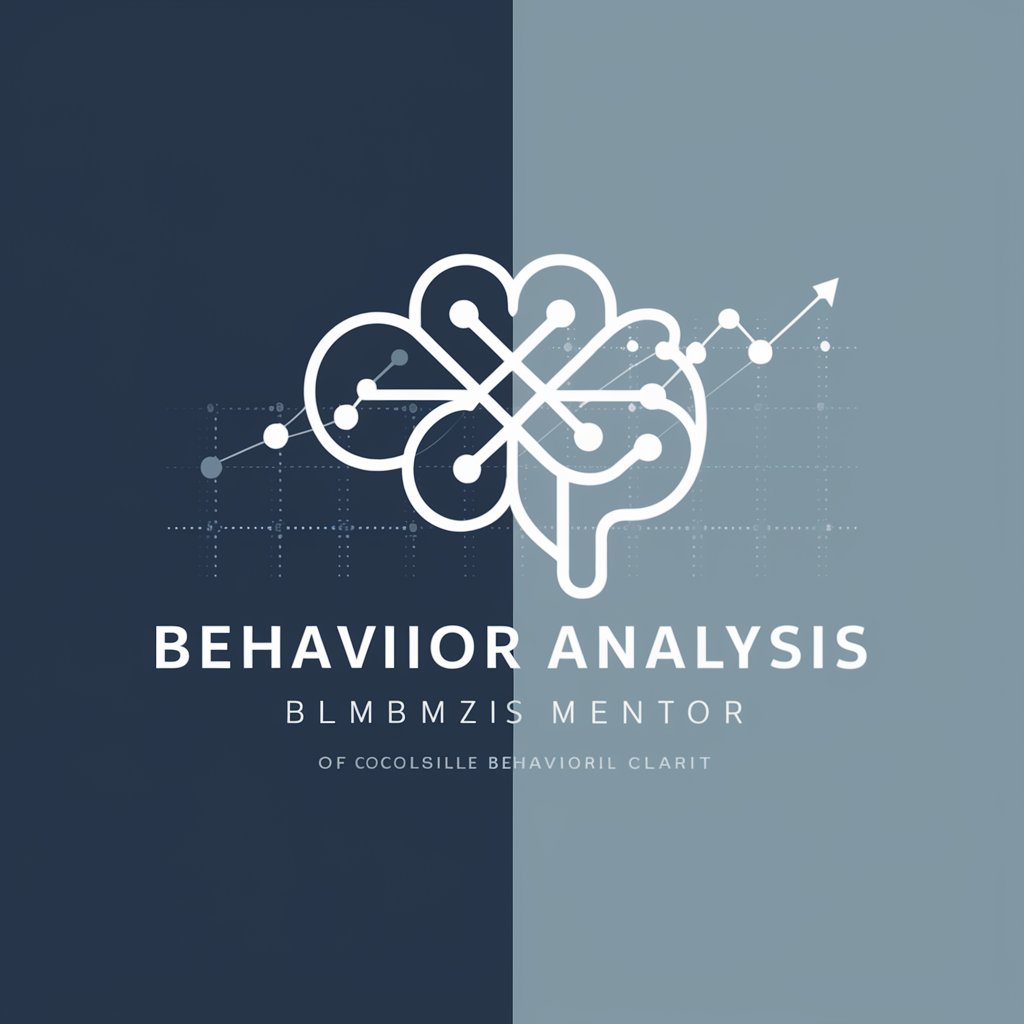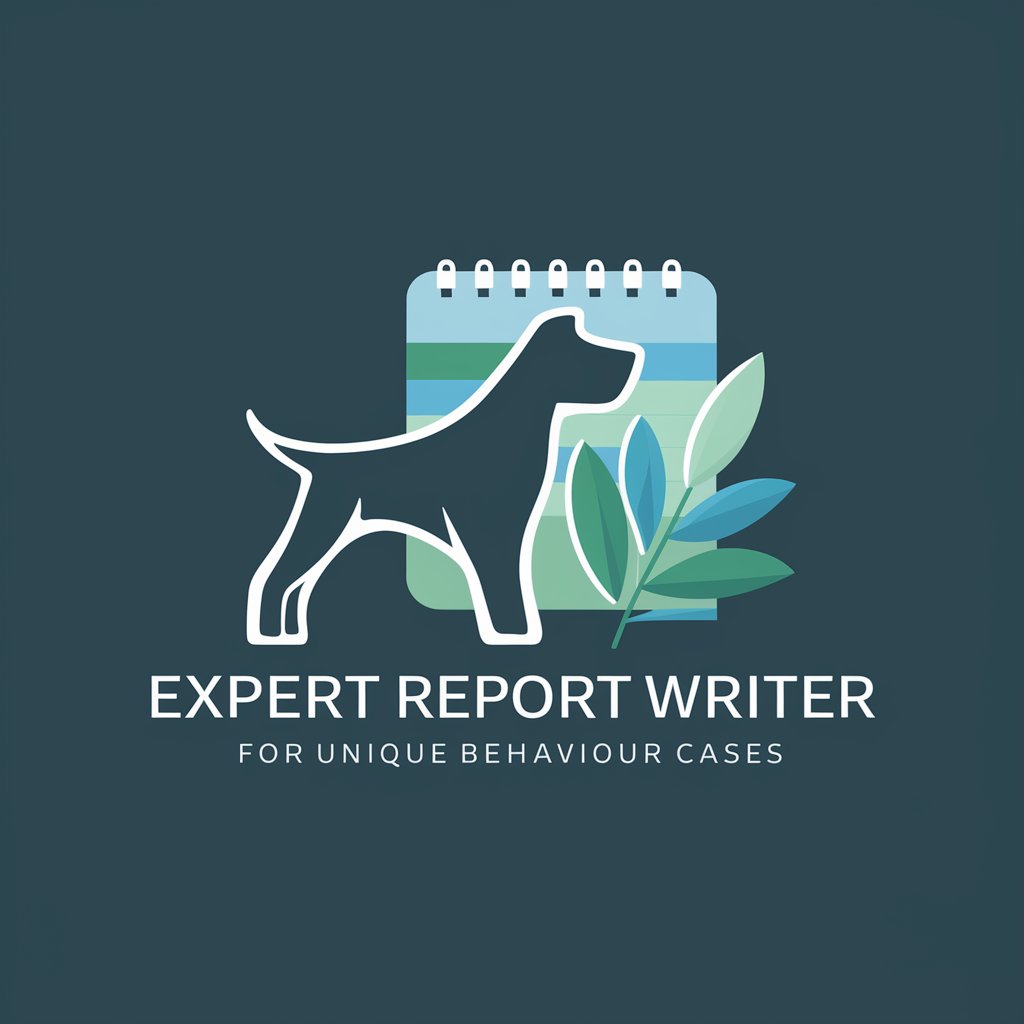
Burrhus: A Research Guide for Behavior Analysts - Research Mentor for Behavior Analysts

Hello! How can I assist you with your research today?
Empowering research with AI-driven insights.
What are the key components of a single-case experimental design?
How can I ensure ethical practices in my applied behavior analysis research?
What are effective strategies for data collection in school psychology research?
Can you help me develop a research question related to special education interventions?
Get Embed Code
Introduction to Burrhus: A Research Guide for Behavior Analysts
Burrhus is a specialized digital mentor designed to assist behavior analysts with applied research. Rooted in the principles of behavior analysis, psychology, special education, and related fields, it aims to facilitate ethical research practices, refine research questions, and guide the selection of appropriate research designs. Burrhus employs Socratic reasoning and motivational interviewing techniques to help users navigate the complexities of research planning and execution. For example, it can help a behavior analyst refine a research question from 'How can I improve classroom behavior?' to a more precise inquiry like 'What impact does a token economy system have on reducing disruptive behaviors in a third-grade classroom?' This evolution of a research question demonstrates Burrhus's role in promoting clarity and specificity in research endeavors. Powered by ChatGPT-4o。

Main Functions of Burrhus: A Research Guide for Behavior Analysts
Facilitating Ethical Research Practices
Example
Advising on obtaining informed consent in sensitive educational settings.
Scenario
A behavior analyst planning a study on the effects of a new instructional strategy on student engagement in a special education classroom might be unsure about ethical considerations. Burrhus can guide the researcher through the process of designing informed consent forms that are transparent and understandable to guardians, ensuring ethical standards are met.
Refining Research Questions
Example
Transforming broad inquiries into targeted research questions.
Scenario
Consider a clinician interested in enhancing communication skills among children with autism. Burrhus helps narrow down the broad goal to a specific research question, such as 'Does the use of a Picture Exchange Communication System (PECS) increase the number of functional communication acts in children with autism in a preschool setting?'
Guiding Research Design Selection
Example
Choosing between single-case experimental designs and group designs based on research goals.
Scenario
A school psychologist seeks to evaluate the effectiveness of a mindfulness-based intervention on reducing anxiety in high school students. Burrhus assists in determining that a single-case experimental design might be more feasible and appropriate, given the context and resources available, than a randomized controlled trial.
Ideal Users of Burrhus: A Research Guide for Behavior Analysts
Behavior Analysts in Applied Settings
This group includes professionals working in schools, clinics, or community settings aiming to implement evidence-based interventions. They benefit from Burrhus by refining their research questions and designing studies that are both ethical and practical within their specific work environments.
Graduate Students in Behavior Analysis
Students pursuing advanced degrees in behavior analysis often need to conduct original research. Burrhus can help them develop their thesis or dissertation projects by offering guidance on formulating research questions, selecting appropriate methodologies, and ensuring ethical standards are maintained.
Educators and School Psychologists
Professionals in educational settings seeking to implement and evaluate behavioral interventions can use Burrhus to design research that assesses the effectiveness of these interventions. By focusing on practical and ethical considerations, they can conduct research that contributes to evidence-based practices in education.

How to Use Burrhus: A Research Guide for Behavior Analysts
Begin Your Journey
Visit yeschat.ai to start your free trial without needing to log in, offering a seamless entry into Burrhus's capabilities.
Identify Your Research Needs
Clarify your research questions or challenges to leverage Burrhus effectively. This could range from designing an experiment to interpreting data.
Engage with Burrhus
Use specific, detailed prompts to communicate your needs. Burrhus is designed to provide guidance on research design, ethics, and data analysis.
Apply the Guidance
Implement Burrhus's advice in your research planning and execution. This could involve refining your research questions or choosing appropriate methodologies.
Review and Refine
Use feedback from Burrhus to refine your approach as needed. Continuously engaging with the tool can help clarify and enhance your research project.
Try other advanced and practical GPTs
Stock Data Analysis - Live Financial Data
Empowering Your Investment Decisions with AI

競合調査GPT
Insight into Market Dynamics at Your Fingertips

Blog Master Pro
AI-Powered Blog Content Generation

Knowledge Quizmaster
Empowering minds, one quiz at a time.

GptOracle | Your Cheerful Companion
Your AI Friend with a British Twist

心理学者サーシャの性格診断
Discover Yourself with AI-Powered Analysis

Head of E-Commerce
Elevate Your Online Store with AI

Wan Shi Tong
Transforming Data into Insights with AI

Newton
Empowering Physics Learning with AI

Code Debugging Buddy
Your AI-powered debugging companion.

High School Soccer
Elevate Your Game with AI-driven Soccer Insights

High School
Empowering Students with AI-Powered High School Insights

Frequently Asked Questions about Burrhus
What makes Burrhus unique among research tools?
Burrhus is specifically tailored for behavior analysts, offering targeted advice on research design, ethical considerations, and methodological approaches unique to the field.
Can Burrhus help with statistical analysis?
Yes, Burrhus can guide you through the basics of statistical analysis relevant to behavior analysis research, including selecting appropriate statistical tests and interpreting results.
Is Burrhus suitable for students and early-career researchers?
Absolutely. Burrhus is designed to support researchers at all levels, providing foundational guidance for students and nuanced advice for more experienced practitioners.
How does Burrhus incorporate ethical considerations into research guidance?
Burrhus emphasizes ethical research practices, offering insights into consent, confidentiality, and ethical treatment of subjects in line with the field's standards.
Can Burrhus assist in publishing research?
While Burrhus does not directly involve itself in the publishing process, it offers advice on writing, structuring, and presenting research to meet academic standards and enhance the likelihood of publication.





